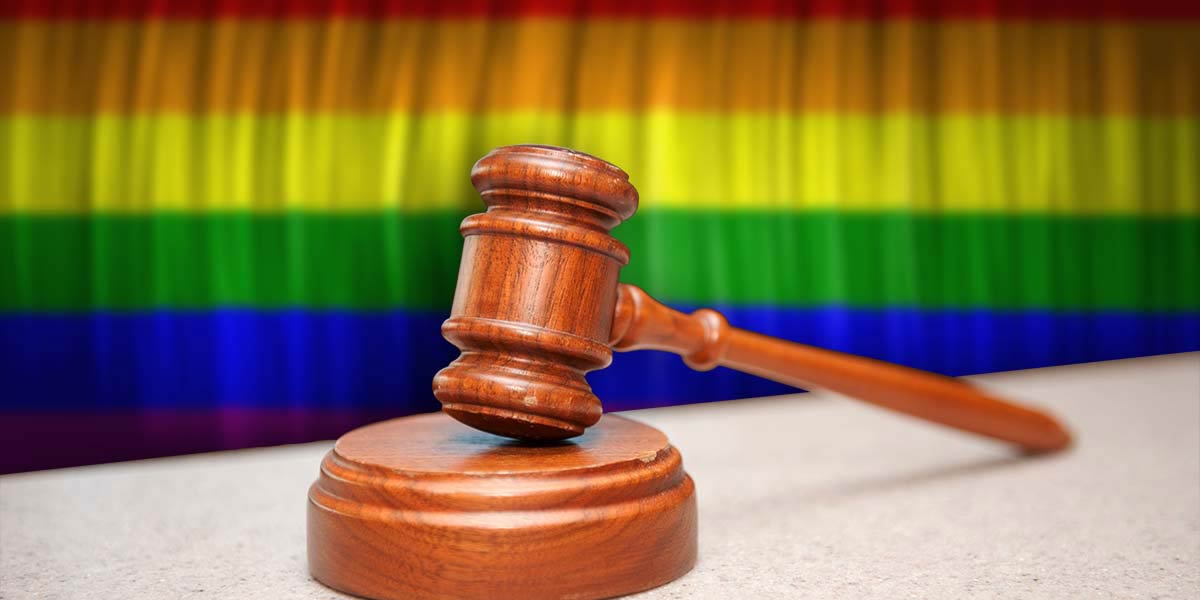Hate crimes group warns of “far-reaching” impact of hate speech ruling

The Hate Crimes Working Group (HCWG) has slammed the recent court ruling that saw the decade-old hate speech charges against Jon Qwelane dismissed. It has also urged the SAHRC to appeal the decision.
The Supreme Court of Appeal (SCA) handed down judgment in the case on Friday 29 November, overturning the South Gauteng High Court’s 2017 decision that found Qwelane guilty of hate speech.
The SCA also ruled that certain provisions in Section 10 of the Promotion of Equality and Prevention of Unfair Discrimination Act (PEPUDA), which regulate hate speech, are unconstitutional because they are vague and overly broad.
In a statement, the HCWG said it was “dismayed that the judgment failed to uphold human rights and access to justice for lesbian, gay, bisexual, transgender, queer and intersex (LGBTQI+) communities in South Africa.”
It continued: “We deplore the overturning of Qwelane’s guilty verdict and the court’s verdict that existing legislative provisions on hate speech are unconstitutional, as this has far-reaching implications for protection against hate speech.”
The case began a decade ago after Qwelane wrote a highly controversial article for the Sunday Sun newspaper titled Call me names, but gay is NOT okay in 2008. In it, he made numerous homophobic statements, which he explicitly stated that he will not apologise for. He also admitted his unwavering support for the late Robert Mugabe’s “unflinching and unapologetic stance over homosexuals”. He claimed that homosexuality is “wrong”, “against the natural order of things” and that the Constitution should be amended by excising the provisions that “give license” to same-sex or same-gender marriage.
The SA Human Rights Commission (SAHRC) took Qwelane to the Equality Court, with the former journalist repeatedly appealing court decisions, questioning the constitutionality of the PEPUDA and refusing to apologise to the LGBTQI+ community.
In its ruling, the SCA agreed with Qwelane that sections of the PEPUDA were unconstitutional and amended the law until such time as it is changed by Parliament. The HCWG said, however, that this amendment “significantly limits the ambit of what constitutes hate speech, as well as the prohibited grounds for hate speech.
“By limiting the prohibited grounds of hate speech exclusively to ‘race, ethnicity, gender, religion or sexual orientation’, many vulnerable groups are excluded from protection, including intersex persons/persons with differences of sex development, persons with disabilities, sex workers, homeless persons and HIV-positive persons, to name a few.”
The law must provide recourse for victims of hate speech
The HCWG is also dismayed that Qwelane will face no legal consequences for his deeply homophobic statements that attacked and dehumanised LGBTQI+ people. “The Court’s judgment leaves these communities with no recourse or justice in respect of harmful homophobic statements that fuel prejudice and hatred towards them,” said the group.
The HCWG argued that hate speech has a severe impact on members of LGBTQI+ communities in South Africa and that the connection between hate speech and hate crime is undeniable.
A recent study on the mental health and well-being of LGBTI people in South Africa found that almost three quarters (73%) of participants had experienced verbal harassment on the basis of their sexual orientation and/or gender identity or expression at some point in their life, and 41% of participants during the previous year. Additionally, almost half of the participants were survivors of sexual violence and more than half of participants had experienced some form of physical violence at some point in their lives. These rates are higher than the general population.
“Statements such as those made by Qwelane reinforce and contribute to an environment of intolerance and hatred in which members of LGBTQI+ communities are subjected to widespread verbal abuse, discrimination and violence, and cannot feel safe emotionally or physically,” asserted the HCWG.
“It is therefore vital that the law provides recourse for victims of hate speech on the basis of sexual orientation, gender identity, gender expression and sex characteristics (SOGIESC).”
The HCWG believes “that the right to freedom of expression must be carefully balanced with the right to be protected from hate speech. In this, the right to human dignity is paramount.”
It said that Section 10 of PEPUDA had at least offered some protection for victims of hate speech. However, “with the restrictive and diluting effect of the SCA judgment,” the group is concerned that victims of hate speech will be more vulnerable.
It, therefore, called both on the SAHRC to appeal the SCA judgment and for the urgent passing and implementation of the long-pending Hate Crimes Bill, to help ensure that those who commit hate crimes are no longer able to act with impunity.
“We urge the government to prioritise this piece of legislation in the interest of effectively monitoring, prosecuting and combating homophobic, transphobic, intersexphobic and other forms of hate crimes facing LGBTQI+ and other vulnerable communities in our country,” said the group.
The SCA’s ruling must still be confirmed by the Constitutional Court.
Leave a Reply